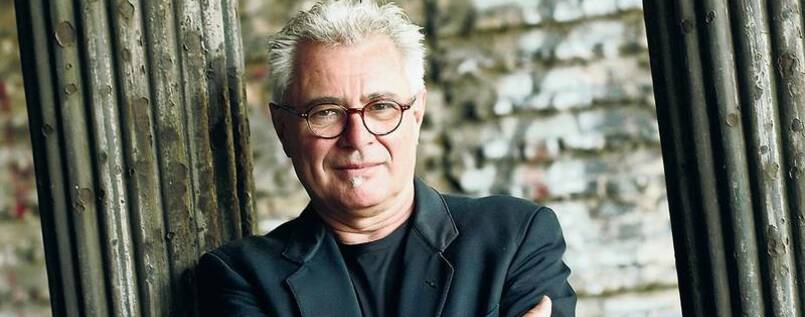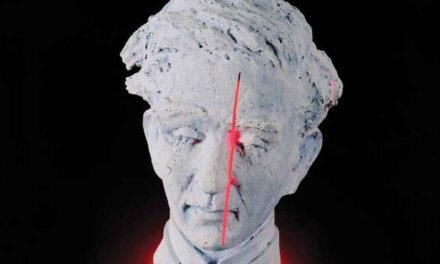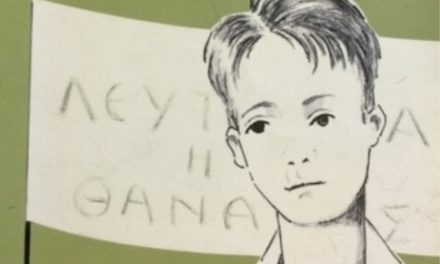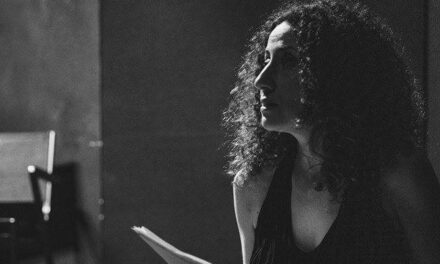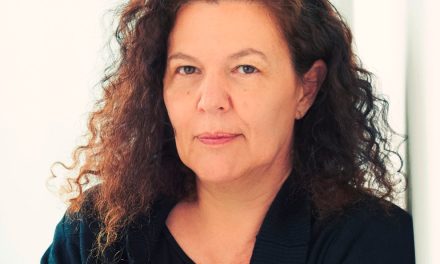Gerhard Falkner, born in 1951, is one of the most important German poets of our time. He has published several volumes of poems, amongst them Hölderlin Reparatur (2008), awarded with the Peter-Huchel-Prize, and Ignatien (2014). In his 2019 volume of poems Schorfheide. Gedichte en plein air he has restored nature poetry. After scholarships at Villa Massimo/Casa Baldi, Rome and the Academy at Solitude castle, Stuttgart, he was in 2013 the first fellow of the Academy Tarabya, Istanbul and in 2014 fellow of Villa Aurora, Los Angeles. His novels Apollokalypse (2016) and Romeo oder Julia (2017), acclaimed by the literary critics, were nominated for the most prestigious prize of the German literary world, Deutscher Buchpreis. Gerhard Falkner lives in Berlin and in Bavaria.
On the occasion of the 1st Crete International Poetry Festival, Gerhard Falkner spoke to Reading Greece about what has changed and what has remained the same in his poetry almost 40 years after his first poetry collection, noting that a recurrent point of reference is his “pushing the language to the edges and limits“, his attempt to shape “the beauty of language itself“. He notes that “the social networks are part of the infantilisation of the world“, adding that this is the reason why his poetry “embraces complexity as part of the beauty“, and concludes that “art could of course generate new images and radical changing realities“.
Almost 40 years after your first poetry collection, what has changed and what has remained the same in your poetry? Would you say that there are recurrent points of reference in your writings?
Since my first volume of poems lots of things have changed, in society and in literature. What has remained the same in my writing is, first of all, my pushing the lanquage to the edges and limits; this sometimes makes my poetry difficult. The best example is my second last poetry book Ignatien in which what I tried to shape is the beauty of language itself.
“[Falkner]combines formal discipline with an opulent and direct sense of th present, thus preparing the ground, as one of the first of his generation, for a poetry alive with richness and sensuality as well as melancholy and pain, as it then began to gaine acceptance form the middle of the 1980s“. How does lyric sensuality blend with modernist restraint in your poems? What role does language play in your multi-faceted work?
In order to succeed in this attempt I follow several layers of different languages, coming quite close to the German romantic theories by Friedrich Schlegel expressed in the famous “Athenäum fragments”, where he demands to accept, next to the poetic language, the language of the sciences, or philosophy, or any kinds of contemporary discourses.

“…forgotten will our poems / be, – what will stay only / the headache / of those who did not keep them“. How is the enstrangement of the poet, the disappearance of the writer in the background of the text and of history dealt with in your writings?
The assertion or thesis of the disappearance of the author has always annoyed me. I cannot confirm it.
You have been trying out novel ways of presenting your work and your collaboration with artists, filmmakers, graphic and sound designers seem to reflect your curiosity towards new shapes and dimensions of poetry. Is the combination of phonetics, dramaturgy and narrative a way to bridge the gap between the writer and the reader?
Yes, it has been quite important for me to work with visual artists, filmmakers, soundperformers etc. It is not only a bridge to the young readers but also a big inspiration in itself.
You have argued that “in systems like Facebook, there is a tightening of language, contrasting poetry,” and “people are in permanent standby positions.” How has modern forms of communication transformed the way that literature, and art in general, is both performed and perceived?
The social networks are part of the infantilisation of the world. The worst part is the reduction of complexity. This is the reason why my poetry embraces complexity as part of the beauty.
What is the relation of poetry to the world it inhabits? Could poetry, and art in general, offer new ways to imagine what could be radically different realities?
Poetry, as an attitude, can have an enormous power. We have in Germany a new message: “Poetisiert euch!!” “poetize yourselves!” and art itself could of course generate new images and radical changing realities, it has so often proved that!!
TAGS: LITERATURE & BOOKS | READING GREECE

